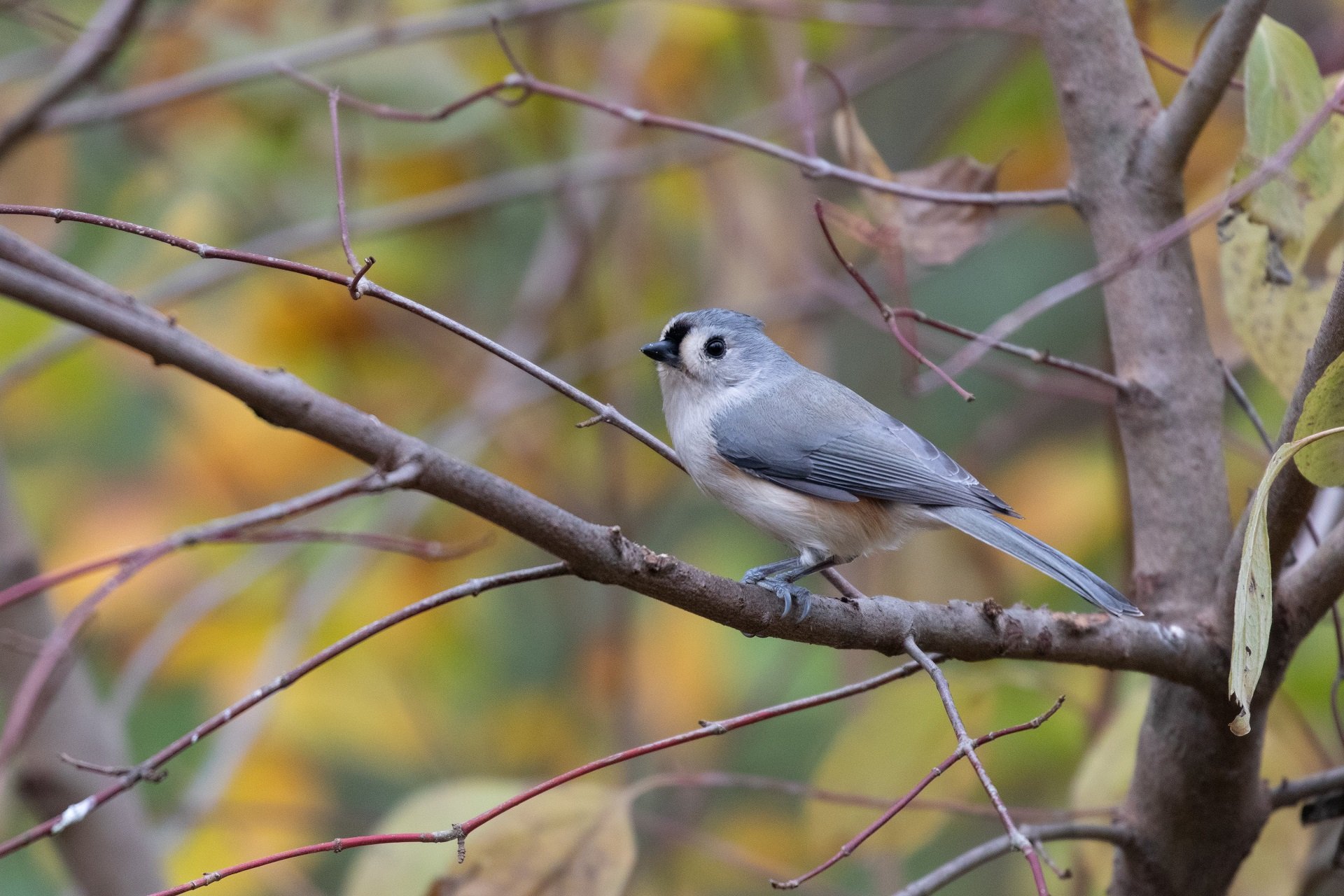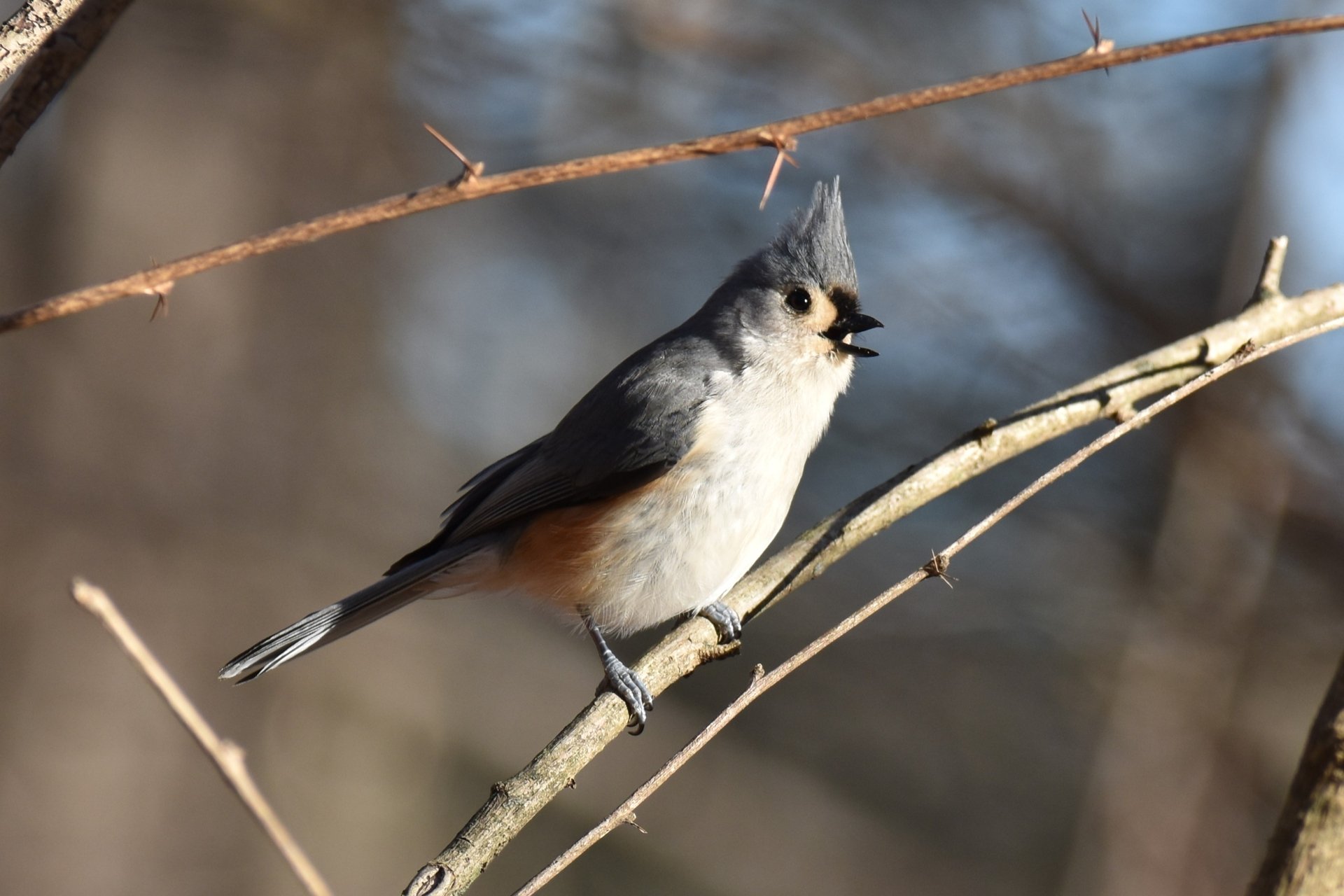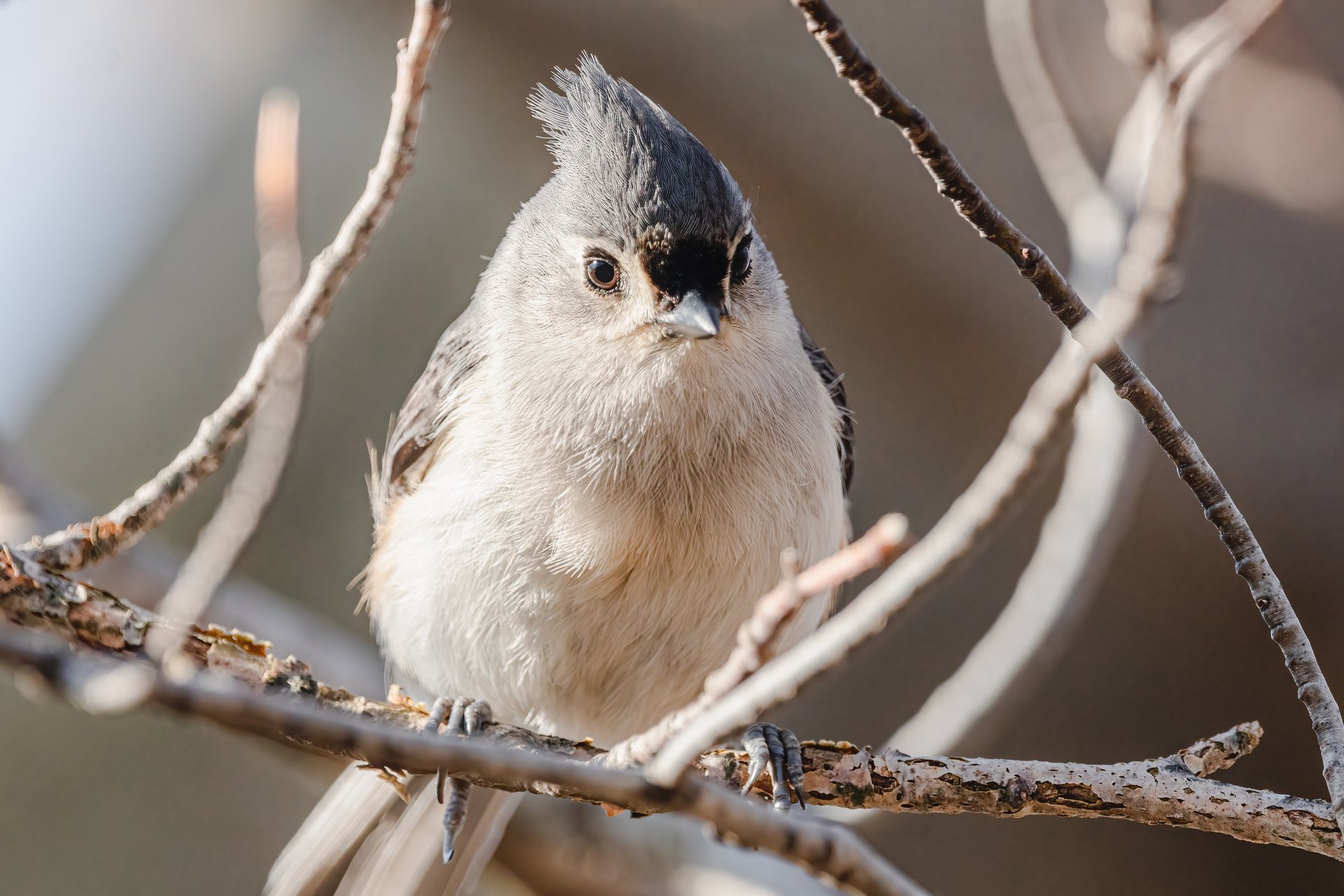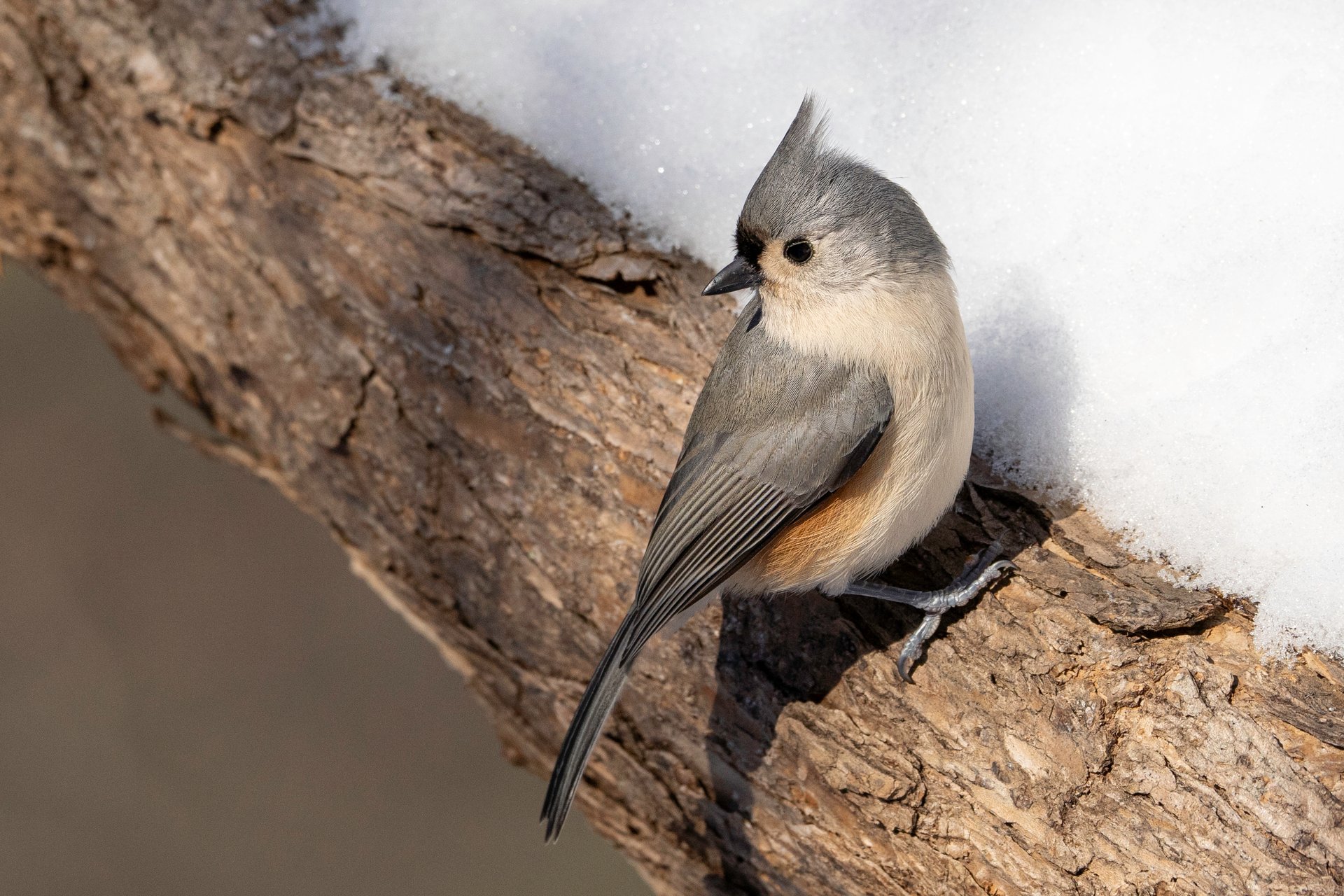Birds in Massachusetts
Tufted Titmice
Like miniature cardinals cloaked in pale gray, Tufted Titmice often keep company with their cousins the chickadees when foraging for seeds. Although their mousy plumage and big black eyes might suggest that they are furtive, scurrying creatures, quite the opposite is true.
Tufted Titmice are bold as brass, harassing intruders in their territory with their harsh scold calls and even stealing tufts of fur from sleeping mammals to use in lining their nests!
How to Identify Tufted Titmice
From the neck down, Tufted Titmice look very similar to black-capped chickadees: pale gray above and white below, with rusty flanks. Their heads sport a small crest like a cardinal’s, and their black eyes stand out in their otherwise unmarked pale faces.
Titmice are noticeably larger than chickadees, with more than an inch’s difference in length between the two on average. Titmice have small but fairly thick bills, and many sport at least a small patch of black “nose” feathers above the maxilla (upper mandible).
Tufted Titmouse Behavior
Tufted Titmice are fairly large for feeder birds, and they are not afraid to throw their weight around, often displacing smaller or less aggressive birds at feeder perches. They do not forage with quite the same boundless energy that chickadees exhibit, but they can still prove quite nimble when hanging for a hard-to-reach treat.
Tufted Titmouse Call
Titmice in spring sing a repeated series of two-note whistles, peter peter peter, but they are vocal in all seasons. When harassing intruders or predators, they give a harsh scolding dway dway call, often preceded by thin squeaks similar to the sound made by forcing air past clenched teeth.
Where Can I See Tufted Titmice?
As a species in the midst of a successful range expansion from the Southern US, Tufted Titmice are increasing in all seasons. They can be found practically anywhere in the Commonwealth where there are trees, with the notable exception of Nantucket, which they have yet to colonize.
How Mass Audubon is Supporting Birds in Massachusetts
Mass Audubon works at our wildlife sanctuaries and beyond to ensure that the nature of Massachusetts continues to thrive. By scientifically monitoring Massachusetts birdlife, Mass Audubon informs important conservation decisions and launches targeted initiatives to help at-risk species. In addition, fostering healthy habitats, supporting native species, and educating people about the importance of nature conservation is critical to our success. Learn more about our work
How You Can Support Birds in Massachusetts
Mass Audubon supports birds like the Tufted Titmouse every day, but we couldn’t do it without the support of our 160,000+ members.
Help support Tufted Titmice, and birds like them, by becoming a member today.
Upcoming Bird Programs
See MoreBirding for Absolute Beginners
-
Boston Nature Center and Wildlife Sanctuary, Mattapan
-
Saturday, December 13
10:30am-12:00pm
Adults
Winter Bird Walk at Millennium Park
-
Millennium Park, Boston
-
Sunday, December 14
8:00-10:00am
Adults
Family Christmas Bird Count
-
Arcadia Wildlife Sanctuary, Easthampton
-
Sunday, December 14
10:30-11:30am
Families - children 0 - 12 years
Stay Connected
Don't miss a beat on all the ways you can get outdoors, celebrate nature, and get involved.






